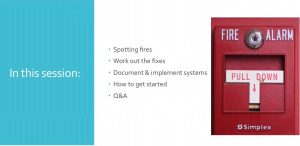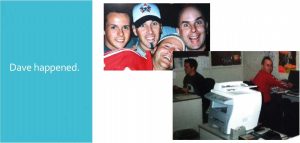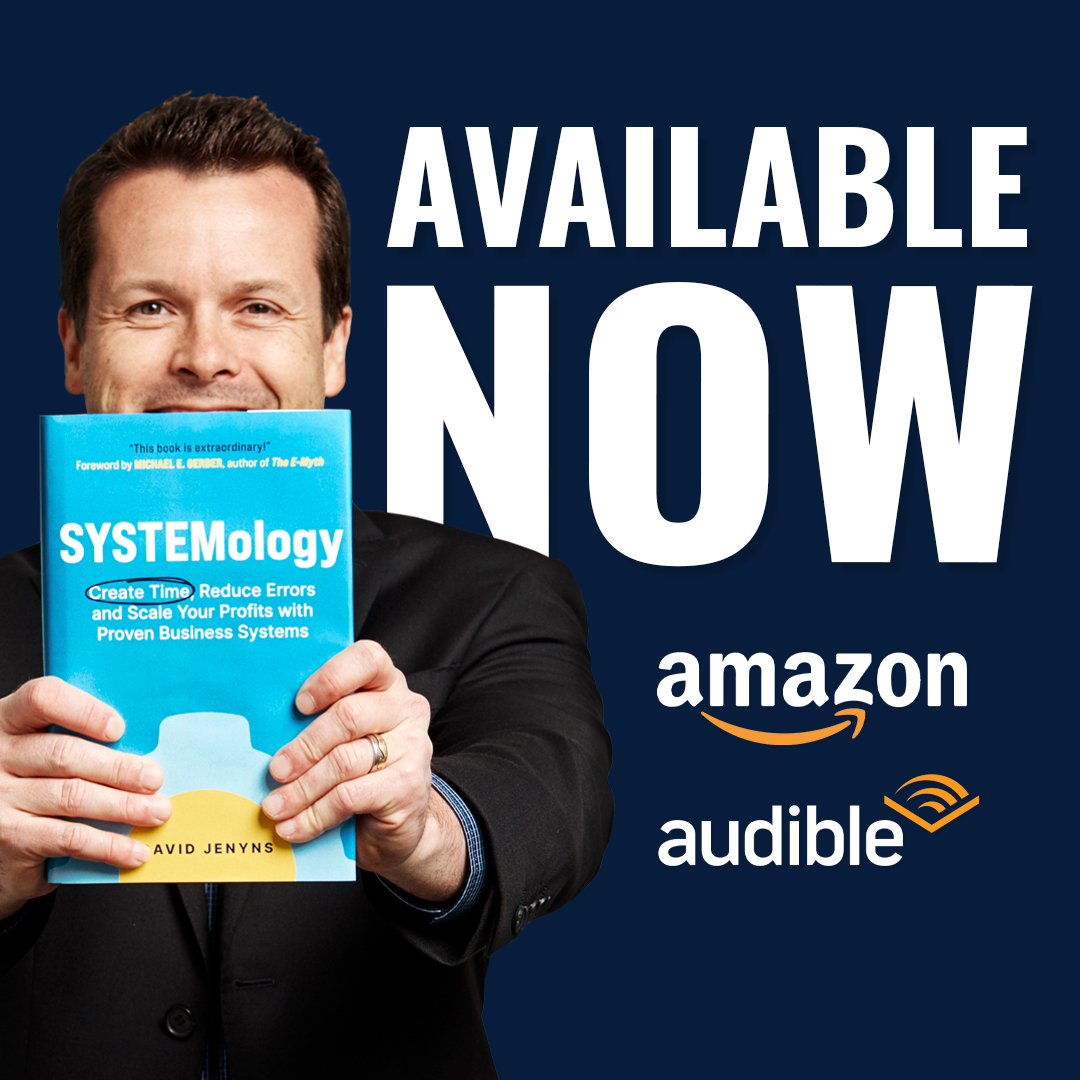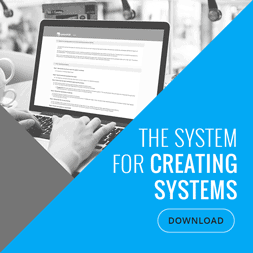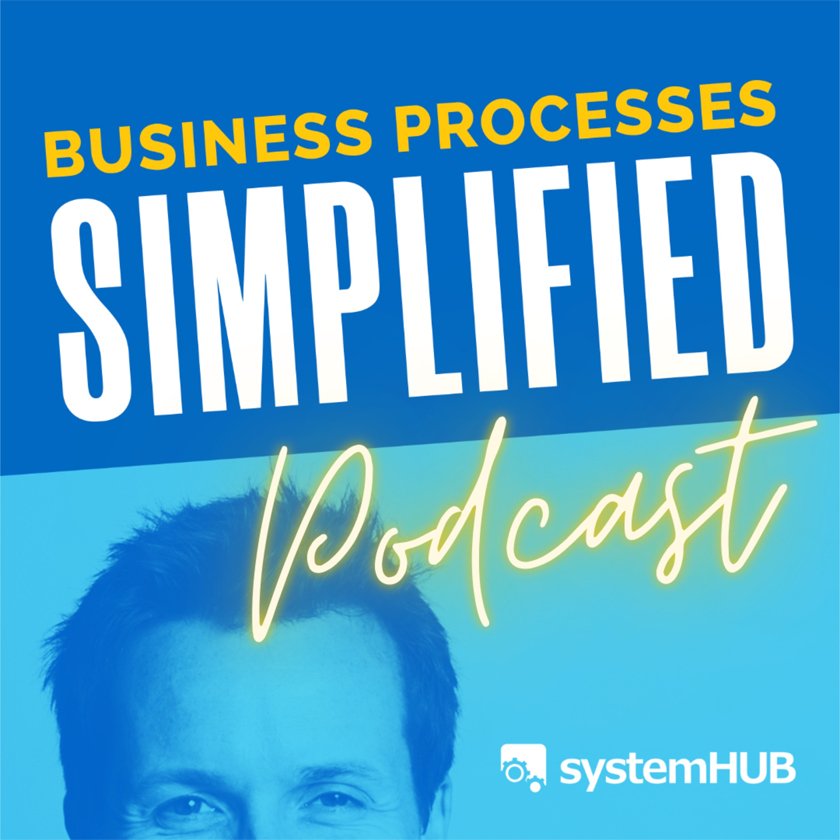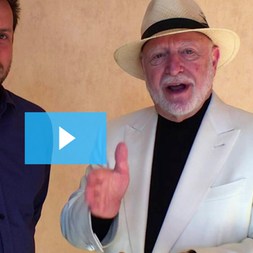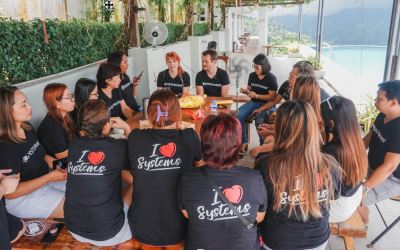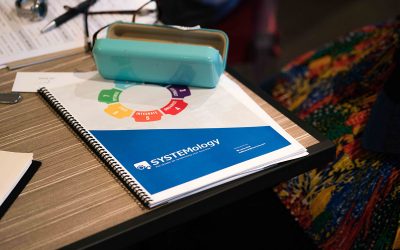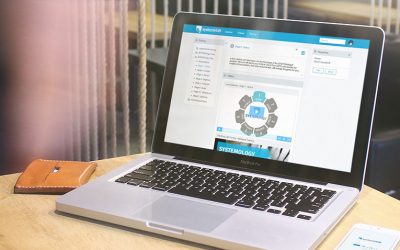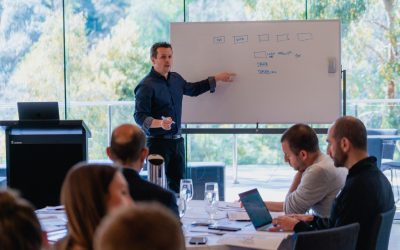Documentation in your business is the key to scaling and growing from small business owner to something bigger. Melissa Crownhurst shares in this systemHUB workshop how documentation helped her sell her business with an added value of $20,000 due to the documentation she had developed throughout.
Are you documenting your processes already?
Have you thought about the value of an operations manual and documentation to your business? Sign up today for your free systemHUB trial – click here.
Video transcript:
I liken systems to something called alchemy. I don’t know if any of you are familiar with the term alchemy. Alchemy is an ancient technique done by magicians. They would turn base metal into gold. So you want to know anybody who can do alchemy, right?
I look at systems as a form of alchemy, being able to turn an ordinary business or a business that is perhaps not anywhere you want it to be and pushing it into the gold area.
Like I said, there have been a lot of really great ideas in the workshop so far. But one of the big problems I think with any entrepreneur or any business owner is what do you do first, where do you start right now? There are too many things I need to do. I’m going to help you identify that.
At the very end there will be a little Q & A session. We’ll talk about Dave, we’ll ask him to leave the room and we’ll all be good.
Before I get started, I think it is really important for you to know, like Dave said, how I got to the way I am now. How did I become such a systems person? I know it’s been mentioned a couple of times so far that systems are great; I really think they are. I’d really like to demonstrate to you why I think they’re great.
I’m going to explain a little bit about me first. I’ve been a very creative mind since I was young. As soon as I could pick up a pencil, I was writing down stories and telling stories. That progressed through my high school career. Simultaneously in high school I published a music magazine. I loved rock ‘n roll, I loved guys in tight pants and I liked to write about it.
I realized very quickly publishing a magazine, my first little business, that I had to create a way of working that would allow me to go to school and publish this magazine. I became so obsessed with trying to work this out that I ended up graduating high school a full six months earlier than my peers. They were all studying final exams while I was off chasing rock bands.
That led to my business mind. I finished high school, went on to get an academic scholarship to university. Simultaneously I ended up opening a beauty salon. My creativity turned into business mindedness. I had to keep up my academic scholarship as well as operate a business. To do that, I had to become very organized.
Having an organized mind might sound boring but it enables you to start thinking about things and how to complete projects that you start. Back before phones were smart, I had this thing called a Day Runner. Does anyone know what a Day Runner is? It is pieces of paper in a little book and a pen.
I loved by my Day Runner. With my Day Runner I used to work out my uni schedule- when my tests were, when my appointments were and when I had to open the shop. I had all these different things. Little did I know, I started to put little systems into place back then, in order to get the most efficiency out of my day.
From there, my music magazine, which was distributed worldwide, actually got picked up by a place called Tower Records. Anybody who is familiar with the United States might know what Tower Records was. It was distributed on the east coast by Tower Records. Through my magazine I met my husband. He is a very business minded musician and when we first met I was publishing the magazine. It was through that we met in 1999, got married and moved to Australia.
He ended up working full time as a night manager at the supermarket in South Yarra called IGA, Ritchies Prahran. I ended up doing a few different jobs. I worked at the National Australia Bank in their corporate card section. I implemented quite a lot of systems for them in that particular area.
We were doing 9 to 5, 9 to 5. I’m sure all of you have heard of Robert Kiyosaki, Rich Dad, Poor Dad. Sean was a big proponent of that book. He said, we’ve got to get out of the rat race. We’re just working for everybody else, making them rich. We need to get out of it.
So we said, ok, let’s have this great idea and open a business. We didn’t get out of the rat race. We ended up working 24/7. What we did though was work full time and we hired someone, from the very first day we opened, to run the store. It was Stars N Stripes, you see here on Bridge Road, Richmond. Music, fashion- inspired retail. We put staff in it from day dot.
I was working in the bank, Sean was working at the supermarket and we had staff running it. On the seventh day, on the Sunday, we used to come in and work and tidy things up and everything. We thought that was how you got to freedom. Robert Kiyosaki says you have to move from this corner to that corner. We thought, we’re going from self employed to business owner.
We were constantly working. We were always answering phone calls from the staff: someone complained. The computer froze up, what am I going to do? We didn’t realize we actually bought ourselves an extra job. Sean and I sat down and said, this is ridiculous. I’m sure this isn’t what Robert Kiyosaki meant when he said get out of the rat race.
We sat down and thought, what do they keep asking? Let’s do a manual so detailed that anyone who is slightly mobile and can read, can run this shop. Put the key in the door, open it, turn the lights on, count up the till. It was really detailed: how to display clothing, how to deal with something in an emergency situation. We found the more systems we put into place, the more we documented in that manual, the fewer phone calls there were.
I remember one time, three or four days had gone by and we hadn’t heard anything. It’s on fire, something must have happened. We rang them and no, everything was good, everything was fine. We thought, aha, this is what you do. You automate it. You document it and you let your staff run it. We were shocked. We actually created that aha moment. It was the first little touch of alchemy for me.
Then Dave happened. A few years later, we had run Stars N Stripes and it was operating really well. Sean and I got an idea. How could we take this edgy music store, this success and how can we roll it out? Let’s go into shopping malls and let’s make it a little more family friendly. Sean had the vision and he had some business nous. I had the systems and the training experience.
But we really needed somebody who had online experience and somebody who had business negotiating and networking skills. Sean and I weren’t the kind of people who liked, at that stage, to do a lot of negations and networking. Through the crazy crew at the IGA supermarket, Dave knew Sean. Sean knew that Dave was a go-getter. He knew through working and seeing his personality, this guy is really good. He’s the type that when he puts his mind to something, he’s going to achieve it.
We said, Dave, come in with us. Daves skills rounded out Planet 13. We opened Planet 13 in 2004. This is the Greensborough store and Melissa is hidden amongst all the dark clothing. From the very first day of Planet 13, we launched it with a full manual.
The entire purpose, the same as Stars N Stripes was to never work in it. It was always to work on it. This was our head office. We actually worked in a head office capacity. We never planned to work in the business, it was always on the business.
We launched it fully loaded with a manual, fully loaded with training. Dave, Sean and I spent probably the first couple of months working all the hours. We wanted to know where these systems were going to go wrong. What possible hiccups were going to happen? Those were long days. I remember we used to go get our feet massaged at the massage place down a couple of levels.
I’ll just quickly show you what we launched it with. This looks like a plastic binder, it looks like a bunch of pages. You are correct. But what you might not realize is this is actually freedom for a business owner. When you document, systemetise, train and put something like this into your business, you are not tied to it anymore.
After those first couple of months of working in Planet 13, we were able to actually leave. It ran. We worked in our head office. We did other ventures, we did other little experiments. We went off and did different things, knowing that every single day that store was just going to open and shut, open and shut, do its thing.
What was amazing, after Planet 13 opened, it wasn’t very long after it was getting an amazing response from people. They said, this is a really cool store, it really operates well. It has great customer service.
As a side note, I think you would all realize, getting really great customer service is not as common as it used to be. Maybe it was because we worked more in an online capacity. But when you have very well trained staff who know what the processes are, who are confident in what they are doing, good customer service follows. It’s because they’re sure, they know what they’re going to say if a customer asks them a question. If they don’t know the answer, they know where to go to get it. That to me is the crux of good customer service, it is confidence.
With Planet 13, people came to us and said, this a fantastic idea. How can I get one? Sean, Dave and I said, wow, people want to buy this. That manual is really good. So Dave, with his business and negotiating skills, started going out trying to find out how can we sell this thing to people?
Everyone is familiar with franchising and the franchising model. So we went out and met some different franchising companies and we met with one in particular. We sat down and brought all the manuals and documentation. They were telling us about all the important elements you must document. It was something about a $60,000 price tag to actually franchise. We were a little bit blown away by that.
Then the guy said, but you’ve got $20,000 of it right here. You can imagine how excited that made us feel. We’ve got $20,000 of it. So we had this meeting. After we left, we said, after that whole meeting really this was it, bar the legals. You have to get legal paperwork done and done properly. I don’t expect everyone to do DIY legal on that.
We realized through systemizing, automating our process, by documenting training, getting those things done, we created the franchise model. We sold them on that manual and they worked.
Documentation is not the most exciting thing for most small business owners but it is an essential part if you want to grow your business. If you’re serious about your business growth, you can get started with your free systemHUB trial here.
